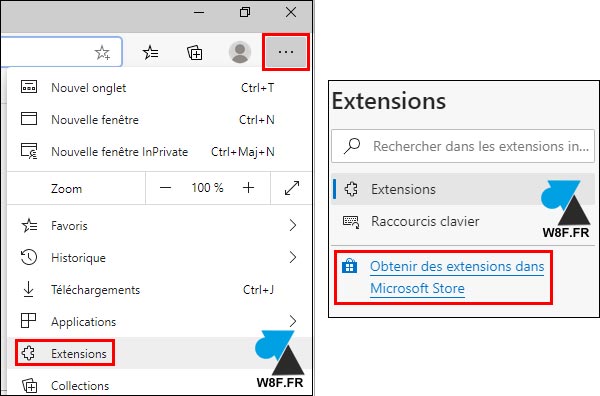When you install AdBlock for the first time, AdBlock will request some permissions to operate within your browser. It will look something like this: 'AdBlock can read, modify, and transmit content from all web pages. This could include sensitive information like passwords, phone numbers, and credit cards.' Although the exact wording depends on which browser you use, the warnings all sound a little scary. That’s because it’s important to be careful with your browser permissions! You should be aware of what your browser extensions can do.

Ad blockers work by 1) blocking a web page's requests to download ads from the servers that host them and, 2) hiding any ads that can't be blocked. To do that, the extension needs to:
- See every page you open so that AdBlock can run on every page you visit. This also means that AdBlock knows the URL of every page you visit.
- See all the data on the page to find any unblocked ads among the other content. This also means that AdBlock can see any forms you submit and your browsing history on that tab.
- Change the data on the page by adding some HTML, CSS, and JavaScript code to the page to hide unblocked ads.
It's important to know that just because AdBlock can see everything on a web page, it doesn't mean it actually does anything with it. The extension does not record your browsing history, capture your passwords or bank account numbers, or secretly collect or change data you submit on a web form.
In 2014 uBlock Origin’s founder, original author and lead developer, Raymond Hill, created the original uBlock extension, with its development initiated by forking the codebase of HTTP Switchboard with a separate blocking extension, uMatrix, which had been previously designed for advanced users. The initial uBlock was developed by Raymond Hill in order to enable community-maintained block lists while simultaneously adding additional features and upgrading the code quality to proper release standards. First released in June 2014 as an exclusive Chrome and Opera extension, in late 2015 the initial uBlock extension expanded to other browsers under its current name – uBlock Origin.(occasionally represented globally as – uBlock₀).
Following this 2015 introduction, a collaborative comsource and Sourcepoint industry research survey reported an 833% growth rate over a 10-month period ending in August 2016, the most rapid growth among any industry software publicly listed at that time. This report attributed this enormous surge to collective user demand for “pure” blockers with the capacity to operate outside the “acceptable advertising” program used by AdBlock, and other industry extensions.
- Finally, an efficient blocker. Easy on CPU and memory. IMPORTANT: uBlock Origin is completely unrelated to the site 'ublock.org'. An efficient blocker: easy on memory and CPU footprint, and yet can load and enforce thousands more filters than other popular blockers out there.
- Adblock for YouTube is a cross-browser extension with content filtering and ad blocking that blocks all ads on Youtube. This allows users to prevent the display of.
Quickly gaining traction throughout the entire ad-blocking industry, the uBlock OriginFirefox version collected over 5 million active users, with its Chrome extension subsequently compiling over 10 million active users. Developer Nik Rolls then officially released uBlock Origin for the Microsoft Edge browser in December 2016.
In January 2017, uBlock Origin was added to the repositories for Debian 9, and Ubuntu(16.04), and the uBlock Origin extension was awarded the prestigious IoT honor of “Pick of the Month” by Mozilla.
Adblock Plus is a free ad-blocking extension for all browsers that supports websites by not blocking nonintrusive ads by default (configurable). Adblock Plus for Microsoft Edge is still in its early development stages and therefore has known issues and limitations. Jan 25, 2020 Inbuilt Blocker vs Third-party AdBlock Extensions. The inbuilt tracking prevention of Edge Chromium is effective but it ain’t full proof. It can block the majority of the trackers and personalized ads but it still leaves out ads on particular trusted websites.
As of 2021, uBlock Origin continues to be maintained and actively developed by founder and lead developer Raymond Hill.
The uBlock Origin extension remains an industry leading, open-source, cross-platform browser extension with software developed specifically for multiple platform use, and as of 2021, uBlock Origin’s extension is available for several of the most widely used browsers, including: Chrome, Chromium, Edge, Opera, Firefox and all Safari releases prior to 13.
Adblock Plus Chromium Edge
The uBlock Origin project still specifically refuses donations at this time, and instead advises all of its clients, users and supporters to donate to block list maintainers.
